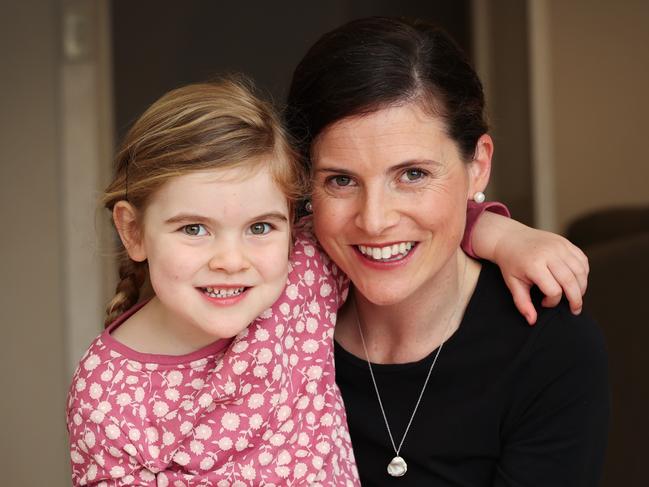Melbourne researchers discover C-sections do not increase food allergy risk in the first year of life
Melbourne researchers have disproved a common theory about caesarean births that they hope will reassure new mothers.

Victoria
Don't miss out on the headlines from Victoria. Followed categories will be added to My News.
Melbourne researchers have found no link between caesarean births and infant food allergies, disproving a theory — once considered “plausible” — that linked the two.
The study of more than 2000 infants, led by the Murdoch Children’s Research Institute, found C-sections did not increase food allergy risk in the first year of life.
It comes as new research, also led by the institute and published today by the Journal of Allergy and Clinical Immunology, found a higher number of children than previously thought will naturally outgrow certain food allergies by the time they start school.
Researchers found 90 per cent of egg allergies and 30 per cent of peanut allergies naturally resolve by the age of six, compared to previous estimates of 80 and 20 per cent respectively.
Murdoch Children’s Associate Professor Rachel Peters said both studies were particularly meaningful for Australia, which has the world’s highest rates of childhood food allergy.
“It’s really reassuring for families, particularly with egg allergies … the most common food allergy in Melbourne,” she said.
“(Mothers) often think about what is it that I’ve done or could have done that would have made a difference.
“I hope it’s (the caeseran study) reassuring for mothers.”

She said some researchers previously thought caeseran babies were at higher risk for allergies because of differences in early microbial exposure. But she said their study to investigate the link was the first to measure allergy rates with the “gold standard” — medical tests conducted in a healthcare setting as opposed to self-reports.
“Going into the study, we felt that our data was quite strong,” she said.
“And if there was an association, we would be the right study to find it.”
They found 12.7 per cent of babies born via caesarean had a food allergy compared to 13.2 per cent born vaginally.
She said the next step for researchers was to focus on the peanut and egg study and investigate why children with early-onset and severe eczema and multiple allergies were less likely to outgrow their allergies.
Nicole McEvoy, whose 3-year-old daughter Moira is allergic to eggs and macadamias, said it was “a huge relief” to know she may grow out of her life-threatening anaphylaxis.
“Every single day, we’ve very aware of it,” she said.
“It’s nice to know this may not have to be her life, the way we live watching her.”
Ms McEvoy, who is also pregnant with her fourth child, said she was happy to know the mode of delivery wouldn’t impact her baby’s allergy risk.
Mums always worry about how their pregnancy will impact their child, she said, so it was nice to worry about “one less thing”.




